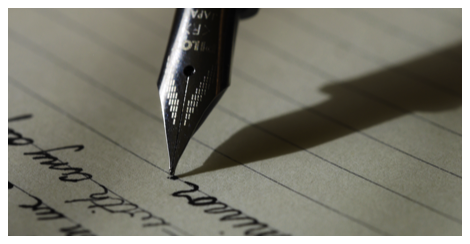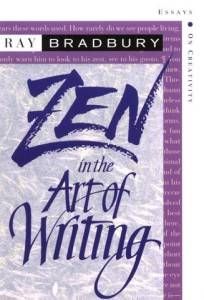
Braver, Bolder Living Through Books on Braver, Bolder Writing
Is there a shortlist for the Worst Poet In The Universe? Is my name on it? It doesn’t seem impossible, and let me explain succinctly why: I tend to stop myself before I even begin writing it. This problem is not unique to my life as a writer. It spills over into my life as a person just living. And it is not awesome.
It’s not an uncommon problem, and maybe you know someone who shares it. I mean, maybe a well-meaning person has given that one book about feeling fear and doing it anyway, or maybe you have yourself been that well-meaning person dolling out that manual for taking a breath and just saying/doing/living it. And I truly have no ill-will toward the book because when it comes down to it, fear is the worst. Any pole that aids our vault above it deserves to be lifted up, celebrated, used regularly.
Books about writing make excellent vaulting poles. Books about any form of art probably do the trick, because when it comes down to it art and life are not very distant cousins. Art has no real manual, at least not a universal one. The rules of art are fuzzy and shifting. Art requires vast amounts of vulnerability. Art takes practice and failure and embarrassment and disaster in order to become good at it.
Wait. That’s, like, the exact description for life. Isn’t it?
Writing is my main creative squeeze, so my shelves are filled with lots of books about how to do it. It is impossible to set them down without feeling at least a little emboldened, a little fiery, and a little like living a more rich and fulfilling life. It would be my great pleasure to share a few poles that have helped me arch my back and rise to occasions. I will not say they have always been great occasions, because sometimes getting out of your own damn head is an occasion which is so small it is immeasurable. Yet it feels like the leap of all leaps sometimes. Anyway. Here are some lessons that have helped me.
Be messy. Doesn’t the word perfectionism kind of make you want to punch it right in its perfect face? I’m a chill dude, but it gets my goat. Perfection and excellence are easily confused, and I have easily confused them for most of my life. A simple piece of writing advice from my adopted creative aunty Anne Lamott gave me a huge advantage here. “Shitty first drafts,” she advises in Bird By Bird. They are not only acceptable and permissible, but they are essential. Our fist attempt will be imperfect. Our seven thousandth attempt will be imperfect. Under the paralysis of perfectionism our attempts may never even exist, and that is a crying shame.

Actual photograph of me thinking about doing something. (Not pictured: me actually doing anything.) (Also not pictured: handling it well.)
Natalie Goldberg echoes this theme in Writing Down The Bones, a staple of so many writing classes and writing circles and bedside tables of people who write only in the most secret privacy of their own homes. There is a forgivable hubris among many writers that they are going to plop down in their chair and write The Great Novel. And then they stare at the perfect snow bank in front of them and they dare not mar it with the ink of their imperfection. I have done this—oh my gosh, I have done this. Specifically with the The Great Novel, yes, but also with The Great Job Interview, The Great Holiday Dinner, The Great Karaoke Rendition of Werewolves of London, and so on and so forth ad nauseam. What has it given me? Hours spent hesitating because I am too afraid to disturb the undisturbed ideal that I want so badly to be the real thing. In short: nothing. What does a shitty first draft give you? It gives you a first draft. There is even a chance it could be excellent.

This book left a word tattooed on my spirit that I look at tenderly in my moments of doubt. The word is gusto. Its linguistic roots come from to taste, to take pleasure. Our work is going to be hard, but joy is the balm of all balms. I try to take pleasure in finding the words even when they will not come, and I call and I call and I call. I try to take pleasure in dicing an onion, even though I will cry and the pieces will inevitably be uneven. I try to take pleasure in getting the house ready for holiday guests. And when I am in the midst of doing something I truly, madly, deeply love I try to remember to splash around in it with relish and abandon. This isn’t always easy either, because I come from a long line of joy skeptics. Its impermanence got confused with being somehow deceitful—like don’t get too cozy in that joy you’ve got there because when you least expect it things could get real, real bad. So I, too, was a bit skeptical. A bit reserved. A bit hesitant.
I am trying all the time to bring joy into my life, to give it space, to notice it and participate in it. When we are in joy mode we operate from abundance, generosity, bravery, authenticity—all the best things. So feel the fear and do it anyway but maybe also feel the joy, too. Our best work often comes from joy. Our best self, too. Obvi.
Trade your narrative in for honesty. The title of this article itself is a nod to Glitter in the Blood, a vivid, vivacious book that made me so excited to write a poem that I actually did. Mindy Nettifee wrote the thing with such a conversational, present voice that it will make you trust her possibly forever. Read it, read it, read it. It will set you on fire and make you fall in love.
One chapter deals with storytelling, and if we ain’t telling stories all day long to ourselves about our life and what we think is going on then we ain’t human. The story or narrative is the plot we wish was happening, or think is happening, or tell people is happening. “Oh yeah, I’m totally working on The Great Novel right now, actually—it’s going Great!” we might say, but actually we’re stuck in a glitch in The Matrix of endless false starts on loop. In the writing sense, it can be trying to force our voice or our work into a shape that isn’t right for it. But we are nothing if we are not stubborn as a species.
“It can keep you,” she writes, “from being able to experience being in the present moment with awakeness and clarity: from knowing that everything that is happening right now is brand new.”
There have been times in which I have tried hard to force my life into shapes that were not right for it. I tried to reshape events to pain myself the hero or the victim when it was me twirling my mustache all along. I’m still not great at the kind of honesty that our best life demands—to honor what we are feeling, what we have done, what we want to do, who we are and who we are becoming. Still, I’m giving it the most enthusiastic college try of all time. The first draft isn’t pretty, but it’s true. And I’ll take that.
















